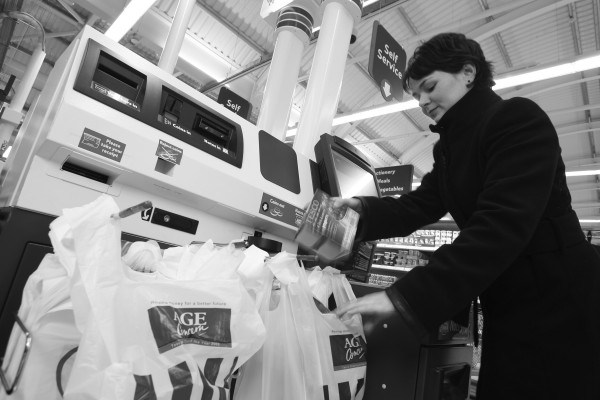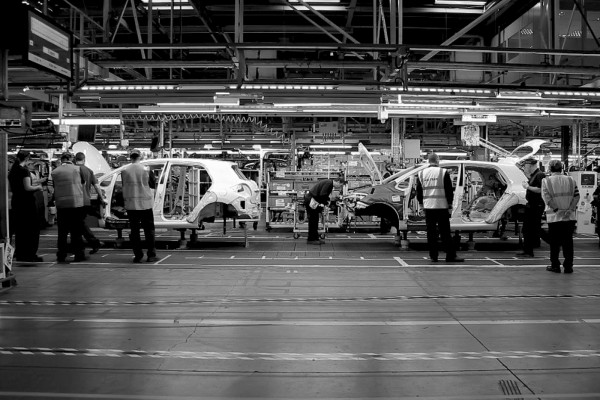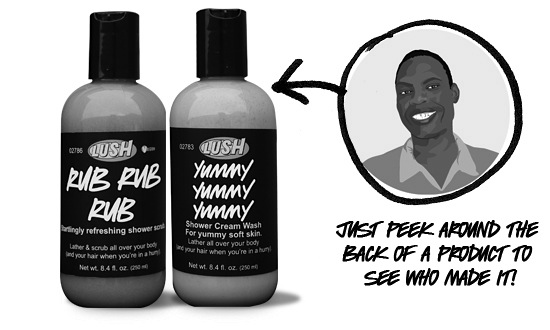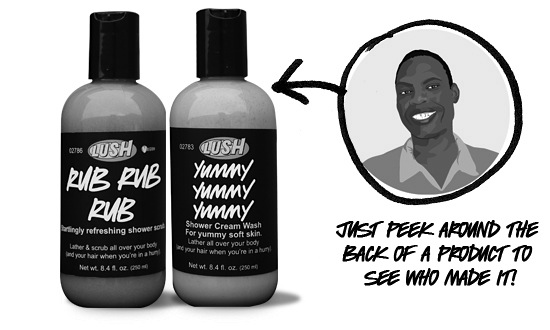We are in the middle of one the biggest economic shifts since the Industrial Revolution. The Information Age is rapidly being replaced by the Relationship Age a new era grounded in technology but focused on people. And it’s happening too fast for anyone to see.

I call this new era the Relationship Age because we will see businesses that nurture their relationships thrive and those that don’t die off. What look like changes in technology today are actually changes in human behaviour.
Once you have everything, you want to stand for something
For years, we have been building our businesses to supply better products more cheaply. This dream been largely achieved and cheap consumer products are now widely available. But we’ve forgotten what consumers wanted all along: To matter. As Guy Kawasaki and Hugh Mcleod have each said in their own ways: There is an almost infinite demand for meaning. At the end of this recession, the new growth will come from hand-crafted, relationship-based, businesses that can think like a small company and still move resources like a large company.
Efficiency is no longer enough
The next big driver of progress won’t be scale-based efficiency. It will be a return to human values and relationships. In a business sense, this will mean customer service (in all its forms) will become the biggest differentiator.
This new school of service will look more like after-sales support, installation, training and online peer communities. People won’t just buy a product, they’ll buy into a series of interactions with you. If you’ve ever bought something from a small local store instead of a chain store then you know what this trend looks like.
Standardised customisation
Automated manufacturing, 3D printing and rapid customisation are going to create manufacturing businesses re-born as service businesses. Computer controlled manufacturing has streamlined mass production to a point where were the output no longer needs to look like it was mass produced. Toyota now makes dozens of colours, models and variations on the same production line so that, as a customer, you can customise your car uniquely for about the same cost price as if it was built standard. I worked with a clothing manufacturer in New Zealand that can make a custom measured suit for the same price as an off-the-rack one because every part is laser cut one at a time using a computer.

Efficiency will set us free, but to what end?
Ever wondered what all those people made redundant by robots and computerisation are going to do? The answer is service. And not the crappy, indifferent service that you’re currently used to from an airline, hospital or bank. Competition will weed that crap out faster and faster. Every one of these industries has had such indifferent service because they had to standardise you as a customer and standardise their employees to chase efficiencies. CRM databases are reaching a level where they can allow for service to be personalised without losing efficiencies. These new technologies are now liberating and empowering employees to act like humans again and to treat you as a customer like a human being again. The commoditisation of customers is coming to an end, fast.
Hunger for the human touch
Whatever product you think you sell, it was never really a product, it was always an experience and a service. But now people will start to realise that it’s a service. How many times have you visited the ‘About us’ page of a company’s website before the product page? The fact is that you are looking for people, for other warm-bodied human beings. We do this because people don’t care how much you know, until they know how much you care.
Personalised service at scale
The more electronic people’s lives become, the more they crave real human contact. It’s the “Checked by Quality Control ID12345” stamp that retailer Lush Cosmetics have now reinvented as a sticker with a cute cartoon face of a particular employee saying: “This product was hand-crafted by Janet.” You need to use video customer support and every tool that you can get your hands on to put genuine human emotion back into your customer service.

Invisible service
When a system becomes truly efficient, it becomes invisible. The pay-to-jump the queue security systems in America and the biometric chips in New Zealand passports are clues to the ways that technology can streamline a system until it’s almost invisible. The automated checkout robot at your grocery store is pretty crappy today. But give it enough time (and maybe RFID barcodes mashed up with near field payments) and you’ll forget that it’s even there. I’ve also noticed that in stores with lots of self-service kiosks the staff are friendlier because they have time to spend actually helping a customer find something. These systems will increase people’s expectations of smooth, fast and easy service from every organisation.
Accelerating competition
If you provide a bad product or service, there is almost nowhere left for you to hide. If you don’t surprise and delight your customers with every interaction, then two guys in a garage are coming for you. Technology changes are lowering the barriers to entry in almost every industry.
Next steps
Four things that you can do to embrace the Relationship Age:
- Streamline everything. Make your web checkout process seamless. Make finding things in your store effortless. Make your social media presences instantly responsive.
- Use standardisation to create customisation. Once you have a template for your business, allow your customer to choose the parts that matter to them. Use a clean and fast CRM to remember everything about them and use that information to the benefit of the client (not just you).
- Give your front line employees back the control, freedom and respect that they need to be able to deliver great customer service.
- Make every customer feel like they matter. Remember, you don’t sell a widget, you sell the benefits of owning your widget, and you sell the experience of purchasing, using and maintaining it. You sell meaning.
Get angry about bad service
I want you to get angry when you experience bad service and when your company gives it. I want you to start thinking about every choice you make in terms of the meaning you want to create in the world. Every job you take, every website you make, ask yourself: Is this making things better, one person at a time. Ask yourself: Who am I really serving? Am I building a relationship?

Heavy post. I guess you’re saying that the more things change, the more they stay the same.
Great post. I’m a digital service designer. I see the recent development in mobile payment will push up the importance of relationship in consumer’s mind and also change our relationships with retailers and physical stores. What will customer service in retail stores be like if consumers can pay anywhere they want in the store?